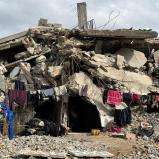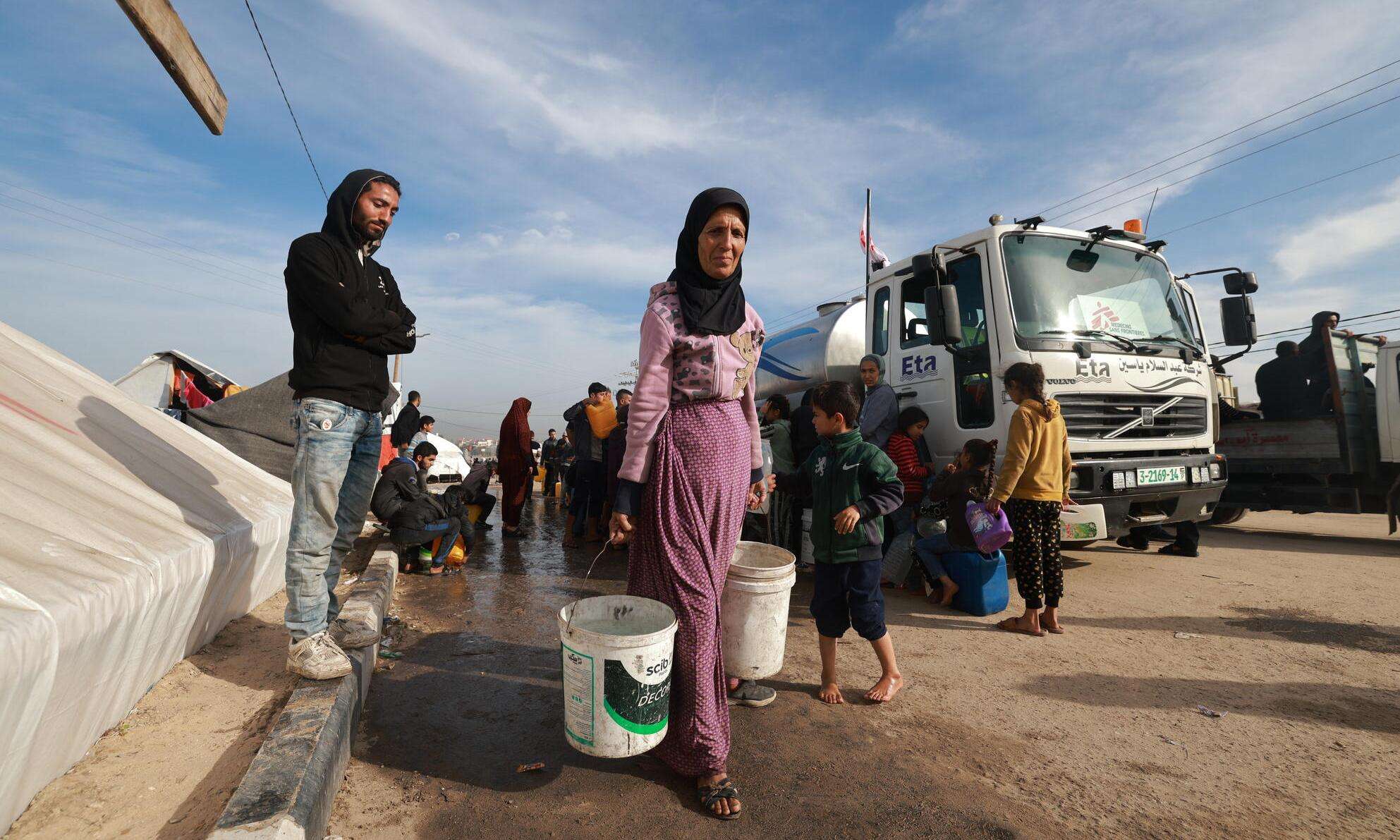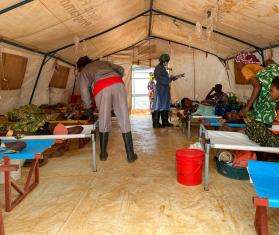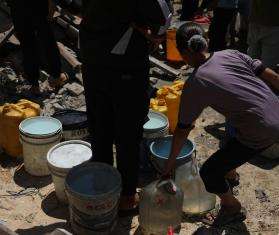On July 20, displacement orders were issued by Israeli forces in parts of Deir Al-Balah, an area that was considered the last remotely safe area in Gaza, and contains one of the few remaining water desalination plants.
According to OCHA, an estimated 50,000 to 80,000 people, who have already been displaced multiple times, were forced to move again and are being squeezed into an ever-shrinking space.
These orders affect Doctors Without Borders/Médecins Sans Frontières (MSF) staff living in Deir Al-Balah, and 36 of our colleagues at MSF’s Al-Mawasi clinic had to abruptly leave a busy health facility that was treating an influx of patients from Gaza Humanitarian Foundation distribution sites so they could evacuate their families.

Israeli displacement orders in Gaza are psychological warfare
View the timelineWater lifelines must be protected
This new displacement order includes the area housing one of the main water desalination plants in southern Gaza. On Monday, water distribution trucks could not reach the plant, and these orders will endanger anyone who tries to distribute water from this lifeline in the near future. Access to clean water is vital for people’s health and hygiene, including to prevent the spread of infectious diseases. Water plants and distribution systems are essential to access this basic necessity and must be protected.
Displacement orders have rapidly expanded across the Strip, from the north to Deir Al-Balah in the Middle Area. These orders now designate over 87 percent of the territory as a no-go military zone. Around 2 million Palestinians in Gaza can now only access less than 13 percent of their land for shelter.




